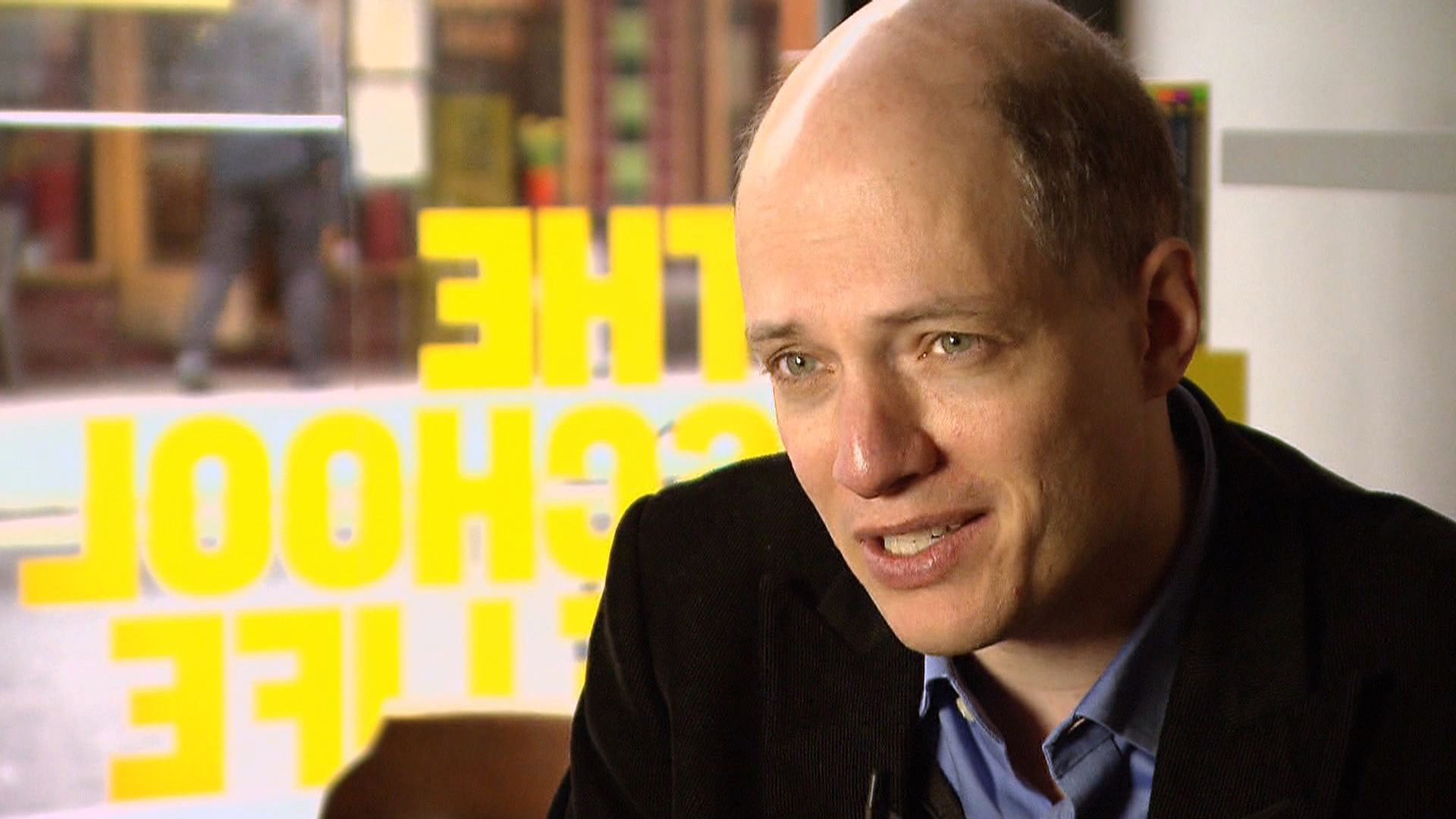Alain de Botton, 20 years a-writing

Swiss-British author and popular philosopher Alain de Botton has attempted to conquer some of life’s great themes in his books, beginning, as is fitting for a 23 year old, with love.
Two decades on, he is driving a small industry of ideas. De Botton’s first book, Essays in Love, written in English and published in 1993, brought overnight fame for the then Harvard student, sealing for him a place among his generation as a notable thinker.
He soon moved across to non-fiction, and other bestsellers such as How Proust Can Change Your Life, Status Anxiety and The Architecture of Happiness followed. But not all of his works have captured the public imagination and some critics dismiss de Botton as a “middle-class lifestyle sage”.
De Botton’s next target is the media, “a book on the news”, he told swissinfo.ch. “The idea started when I read a quote from the German philosopher Hegel, who said, ‘as religions decline the newspaper becomes the predominant source for authority and guidance in men’s lives’. I thought this was a really provocative statement.”
“So it’s a book on the news, how we approach it, what it does to our minds and how it often leads us not to understand a world it apparently is trying to explain to us.”

More
What atheists can learn from religion
Reinventing religion
Always an avowed atheist, religion is de Botton’s current pet subject, following the publication last year of his book Religion for Atheists, “my most commercially successful book to date”.
The book is a plea for atheists to move beyond what he sees as their relentless criticism of all things religious and salvage some of the “useful” aspects of the world’s faiths in an effort to “mend some of the tatters in the modern social fabric”. (See video)
Earlier this year on a visit to Basel to promote Religion for Atheists, de Botton entertained the audience in the Literaturhaus with his description of filling his plate with highlights from “the buffet of religions”.
Behind the humour was a serious message that secular society is failing to give people good guidance on how to live, a gap de Botton aspires to fill. “Religions understand that to belong to a community is both very desirable and not very easy,” he told the receptive mixed-generation crowd.
Hovering at the back of the hall before his speech, de Botton could have passed for a priest, or even an insurance salesman. He would argue the two careers are not unrelated.
In a breach of his usual calm and friendly demeanour, de Botton famously lost his temper online in 2009, posting an angry comment on the blog of New York Times critic Caleb Crain. Crain had savaged de Botton’s book The Pleasures and Sorrow of Work, claiming that the author revealed himself as condescending and mean-spirited in his depiction of the lives of others. De Botton later apologised for this public outburst.

More
De Botton unplugged
“Paradise”
De Botton speaks with a cut-glass English accent which belies no trace of his Swiss origins, but the author clearly still has an emotional attachment to his homeland.
Victims of religious persecution, the de Botton family had to leave Egypt in the 1950s along with the rest of the Jewish community. Alain’s father Gabriel settled in Zurich, had a successful career in banking and later set up an investment firm, making millions. Alain de Botton had a difficult relationship with his father who reportedly was unimpressed by his son’s success.
De Botton spent his early years in Zurich, speaking French at home, and was sent to boarding school in England at the age of eight. He remembers the loneliness of travelling to London as an unaccompanied minor, “the beginning of going back to prison”.
“The reverse journey, arriving at Heathrow to go back to Switzerland was terribly exciting, as this was the journey back home to paradise.”
Will he ever write a book about the country of his birth? “I would love to write a book on the Alpine Republic and its ideals,” de Botton told swissinfo.ch.
“Not necessarily what Switzerland actually is but the dream of Switzerland which, even though it is only fitfully enacted in Swiss life, is a tremendously interesting dream of a society built around localism, direct democracy, financial prudence, modesty around wealth, assistance to the poor, respect for nature.”
More than words
De Botton’s activities now stretch well beyond the literary. Last year in an interview with the British Independent newspaper de Botton admitted he had grown impatient with just being a writer. “What interests me is guidance. I have a therapeutic view of literature. And that vision, which has been expressed in 15 books, can also be expressed in other ways.”
One of those ways is de Botton’s social enterprise Living Architecture, set up “to revolutionise both architecture and UK holiday rentals”. Five one-off holiday homes designed by leading architects have been completed so far.
Still in the pipeline, de Botton commissioned Swiss star architect Peter Zumthor to design a “secular retreat” in rural Dorset, Zumthor’s first permanent project in Britain.
De Botton actively spreads his ideas through talks, television documentaries and courses. In 2008 he founded a self-help educational centre in London called The School of Life – another endeavour which, though popular, has attracted a measure of scorn. De Botton is looking for premises for this project in Zurich.
De Botton is active on Twitter where he dispenses daily doses of wisdom to his 379,000 followers. The following piece of advice he clearly subscribes to in his own life:
One of the finest protections against disappointment is to have a lot going on.
— Alain de Botton (@alaindebotton) May 19, 2013External link
Essays in Love (1993), published as On Love (1993) in the US.
The Romantic Movement (1994)
Kiss and Tell (1995)
How Proust Can Change Your Life (1997)
The Consolations of Philosophy (2000)
The Art of Travel (2002)
Status Anxiety (2004)
The Architecture of Happiness (2006)
The Pleasures and Sorrows of Work (2009)
A Week at the Airport (2009)
Religion for Atheists: A Non-Believer’s Guide to the Uses of Religion (2012)
How to Think More About Sex (2012)

In compliance with the JTI standards
More: SWI swissinfo.ch certified by the Journalism Trust Initiative









You can find an overview of ongoing debates with our journalists here . Please join us!
If you want to start a conversation about a topic raised in this article or want to report factual errors, email us at english@swissinfo.ch.